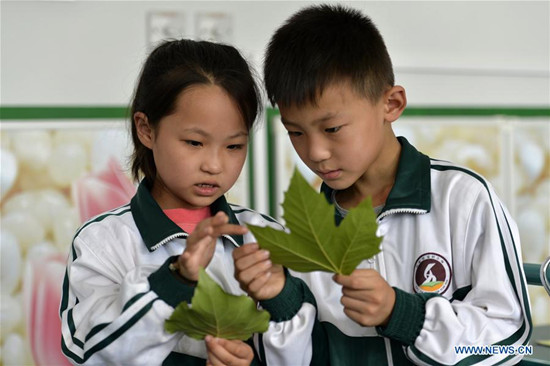China increases science education to boost innovation

Seven-year-old Zhang Lijie, who is starting his first year of elementary school, can't wait for science class.
The new student has always been enchanted by scientific phenomena and gadgets, such as 4D imaging and solar batteries.
"Thirst for knowledge, exploration and curiosity are the most precious qualities of children this age, and they need to be protected," said Kong Rongrong, Zhang's mother.
In February this year, China's Ministry of Education issued a new guideline for science education, requiring elementary schools to make science a compulsory subject for first-grade students.
The move showed the authorities' determination to improve children's scientific literacy, said Wang Kai, a researcher with the Beijing Academy of Educational Sciences.
Science classes were first introduced for primary school education 16 years ago when the subject "Nature" was changed to "Science" as part of a curriculum reform in 2001. But the class was only for students in third grade and above.
The new guideline will allow more children to start learning about science at an earlier age, said Chen Jie, a teacher at the China-Cuba Friendship Primary School.
"Studying science from the first grade can meet the children's growing curiosity and make scientific education more complete," said Chen.
More efforts are needed to help students better understand the relationship between nature and mankind, said Yu Bo, an associate researcher with the National Institute of Education Sciences and editor-in-chief of the science textbook.


 Jiangsu college students tell inspiring campus stories
Jiangsu college students tell inspiring campus stories